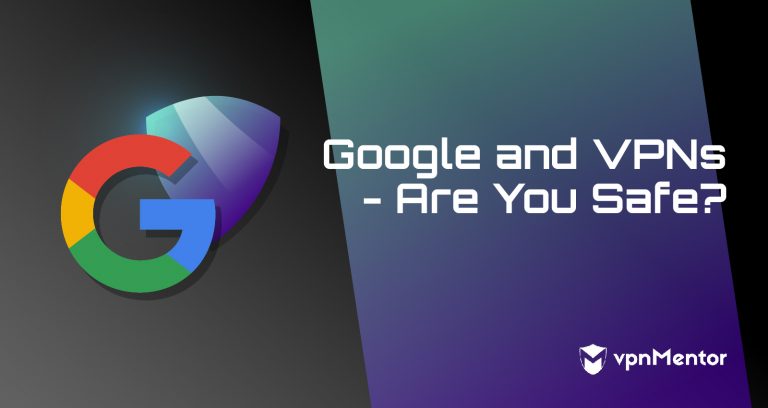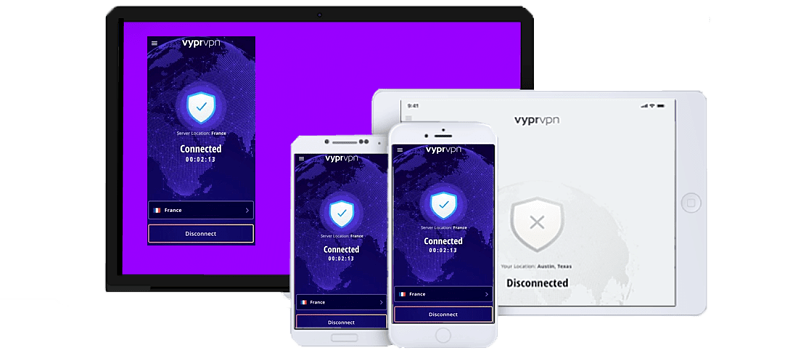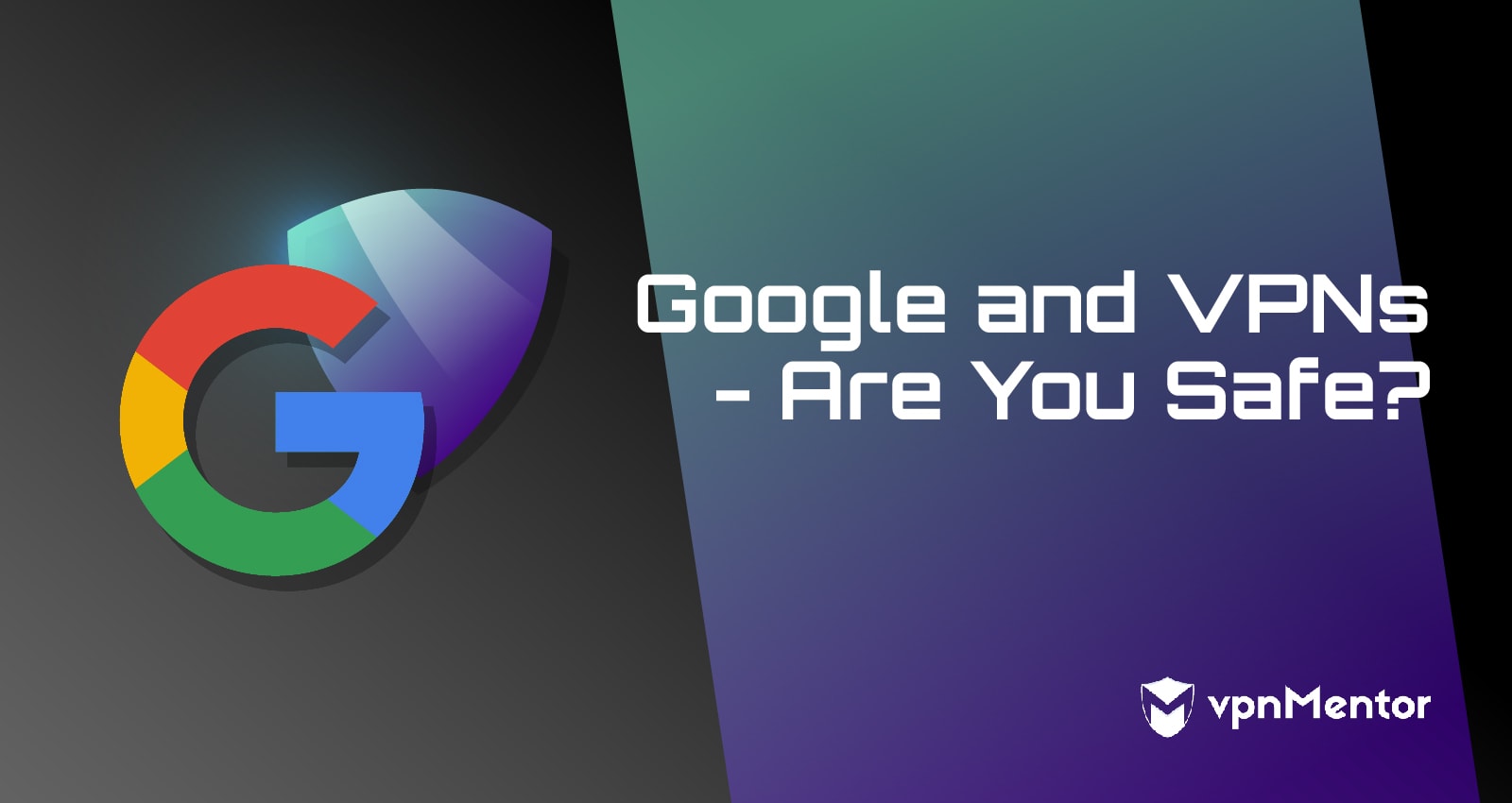Google & VPNs - Are You Really Safe? Updated Guide 2025
Since establishing itself as the internet's best search engine, Google has grown to have a hand in practically every web service. Google even offers its own VPN service. Read on to learn more about the pros and cons of Google Cloud VPN and to discover the best alternatives.
In recent years, Google has become the poster child for privacy violations in the digital era. So when you consider using the Google Cloud VPN, you have to ask yourself: am I protecting myself or exposing myself to a different kind of risk?
This article will help answer your questions about Google Cloud VPN and explore the other alternatives on the market.
What is Google Cloud VPN?
Most VPNs advertise themselves as tools for maintaining your privacy while also staying safe on the internet.
Google Cloud VPN doesn't really have the same two-part mission. It also doesn't try to present itself as a solution to individual security concerns.
Instead, it focuses on increasing security for organizations and networks, specifically those that are interested in utilizing other Google Cloud services.
The Google Cloud VPN is different from many others because it creates a secure pathway for router-to-router connections only.
It is not the kind of service you would use to hide the IP address of your own personal laptop or tablet whenever it connects to the internet.
It is not set up on that device but on a router that might be used for multiple devices that connect to the Google Cloud.
All data that passes through that router to get to the internet is encrypted before passing through a proxy network.
As with any reliable VPN, the two-step encryption process runs in both directions and makes it much more difficult for hackers to see what is being sent or received over the client network.
Google brags that this "protects your data as it travels over the internet." But unlike a lot of other VPNs, it doesn't say a thing about privacy.
This goes to show that Google may still have access to the data that passes through its Cloud VPN. And this data may be archived or used for the same questionable purposes as all the other information Google is constantly gathering.
Even if no one can tell what this VPN is being used to access, it will always be clear that the traffic is passing through a VPN.
Other services take steps to hide where the traffic is coming from. But Google Cloud VPN lumps together all traffic on the original network, with its unique IP address.
What Are the Alternatives?
It might seem like it's worth the risk of being identified, as long as no one other than Google can see what you're doing. And that may be true if the users of your network are worried about hacking but not about Google's corporate snooping. But if you can have the best of both worlds, why wouldn't you?
That's what the following VPN services offer. Each of them can be used right within your browser instead of being set up on your network.
But this doesn't prevent you from using them to protect an entire organization, because each one can be installed on multiple devices. Then, each device can enjoy separate encryption and separate pathways to the internet.
The following VPNs also maintain no-log policies so no one can piece together and identify the traffic that enters and leaves a proxy server.
This way, users have short-term protection against opportunistic hackers, plus long-term protection against corporations and government agencies. Whether they use legal or illegal means, they won't be able to see what you're doing or what you've done.
These benefits are common to most well-known VPNs. But with that in mind, let's rank the five best VPNs for accessing Google Cloud services without the Google Cloud VPN.
1. IPVanish

Tested July 2025
You can’t beat unlimited access, and that’s what you get with IPVanish’s Unlimited device connections.
This is great for collaborative teams and small companies that need to securely access cloud services or sensitive online data.
Even if you’ll be the only person using the account, devices can quickly add up. With IPVanish, you can protect your phone, laptop, tablet, and every other device you use without having to worry about running out of connections.
It has a large server network of 2,400 servers in 109 countries and a reputation for being one of the fastest VPNs around. That could be a selling point if multiple users need to get work done quickly or if they need to transfer higher volumes of data. And those transfers will be well-encrypted and protected by a no-logs policy.
IPVanish works on all major devices and platforms, but it doesn't currently have any browser extensions.
That's not a serious drawback, especially when you're comparing it to a VPN that must be set up on your network's router. But it does add an extra step in the secure connection process which some people will find frustrating.
Find out more about IPVanish in our full review.
2. CyberGhost
You can use CyberGhost on up to 7 devices with 1 subscription. That means you’ll be able to protect all your tech with some of the most reliable privacy protections on the market today.
CyberGhost's commitment to privacy and customer service is underscored by the fact that it releases an annual transparency report. That is the sort of thing that really sets a trusted VPN apart from a service that's provided by Google.
The web's largest companies hardly seem to know the meaning of the word transparency. And their questionable behaviors are one of the main things that a VPN like CyberGhost should protect against.
On any device, the VPN will automatically select the best server to accomplish that goal.
But if you want an even greater guarantee of protection, CyberGhost maintains premium NoSpy servers in Romania with even better speeds than are normally available.
This adds to the security of high-level encryption, which is refreshed with new security keys every hour that a connection remains open.
High speeds, constant security, and multiple connections all make CyberGhost a leading choice of VPN for people who want to work collaboratively through the cloud, but in a secure environment.
You can try it out for yourself with the generous 45-day money-back guarantee. If you've decided it's the VPN for you, save money on your subscription with our coupon code.
3. VyprVPN
This VPN was specifically created in the wake of the NSA surveillance scandal, so you can be confident in its commitment to privacy.
It is based in Switzerland, where privacy laws are among the most progressive in the world.
It offers 700 servers in 70 countries. It’s not the biggest network ever, but the servers are well-placed to provide consistent service and reliable speeds.
Where VyprVPN really shines is its encryption. It utilizes various different protocols and also provides users with access to its firewall.
A premium plan also provides access to the Chameleon protocol that hides the fact that you're using a VPN and allows you to surf the web in complete freedom. You can access this and other features with just a modest added fee, and VyprVPN is otherwise one of the most affordable options, even if you only sign up for one year.
A very reasonable monthly price will secure access to VyprVPN for five devices. But unfortunately, only three simultaneous connections are allowed. So if you're planning to use this option to securely access and collaborate in the cloud, you and your colleagues will mostly work separately.
Read our review to learn more about VyprVPN or try it for yourself with the 30-day money-back guarantee.
Conclusion & Further Reading
There's no reason why you should sacrifice privacy for security when selecting a VPN. The point of most such services is to provide both of these things.
And although few VPNs are designed to provide group security to an entire network, many do allow multiple connections.
In fact, this approach might even be more desirable than network-level VPNs, as it allows individual users to utilize distinct VPN tunnels, effectively safeguarding their location and activity information from exposure.
The Google Cloud VPN might be a good option for some organizations. But it requires a level of comfort with corporate spying that most VPN users simply don't have.
If you're looking to avoid targeted ads and government monitoring as well as potential hacking, then there are many options to choose from. And some of those options are made to be shared with colleagues, family, and friends.
The world's biggest data gathering operation seems to be omnipresent. But you should never let yourself be convinced that you can't get by online without Google. If you can search the web without it, you certainly don't need Google for VPN services.
Your online activity may be visible to the sites you visit
Your IP Address:
216.73.216.5
Your Location:
US, Ohio, Columbus
Your Internet Provider:
Some sites might use these details for advertising, analytics, or tracking your online preferences.
To protect your data from the websites you visit, one of the most effective steps is to hide your IP address, which can reveal your location, identity, and browsing habits. Using a virtual private network (VPN) masks your real IP by routing your internet traffic through a secure server, making it appear as though you're browsing from a different location. A VPN also encrypts your connection, keeping your data safe from surveillance and unauthorized access.







Please, comment on how to improve this article. Your feedback matters!